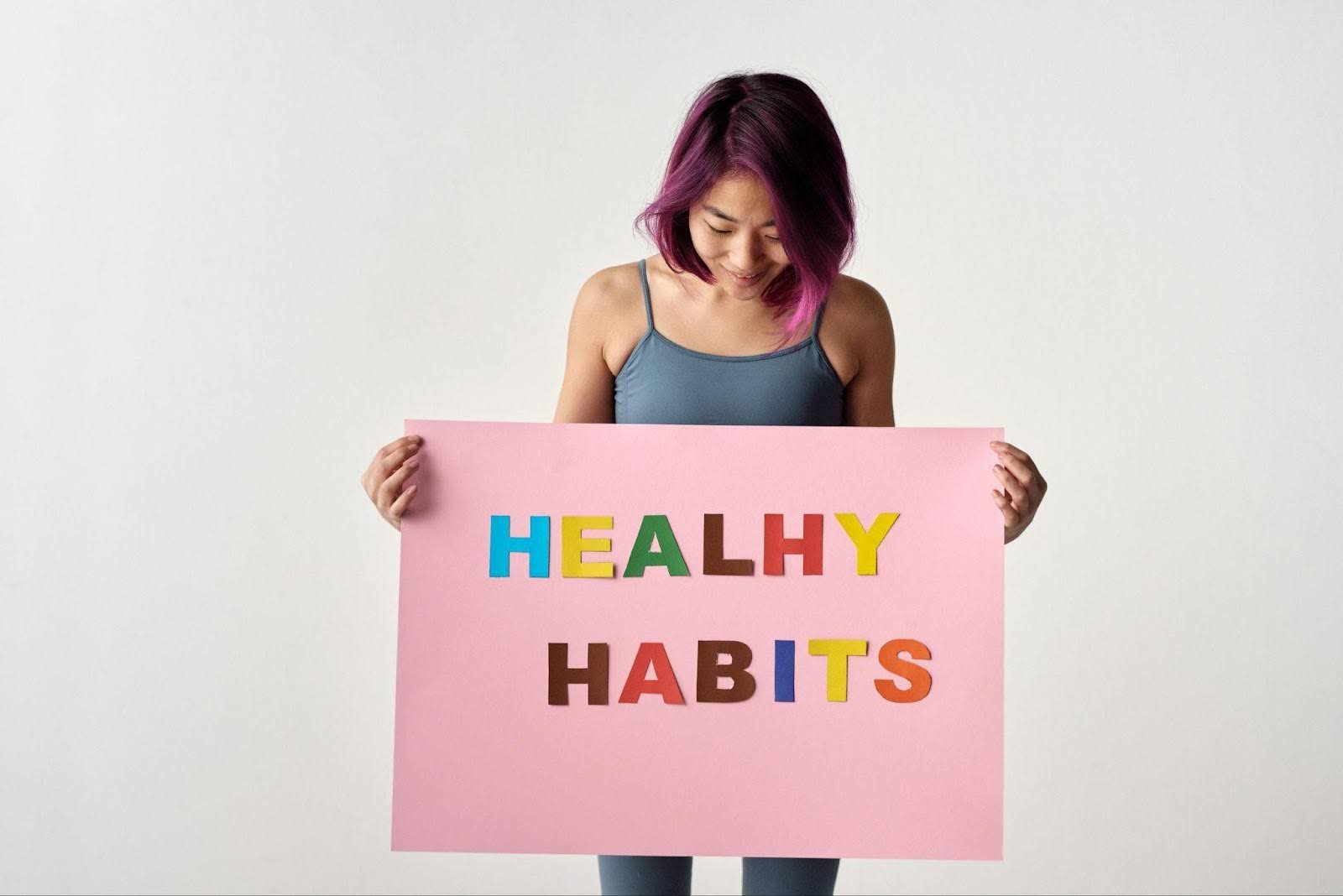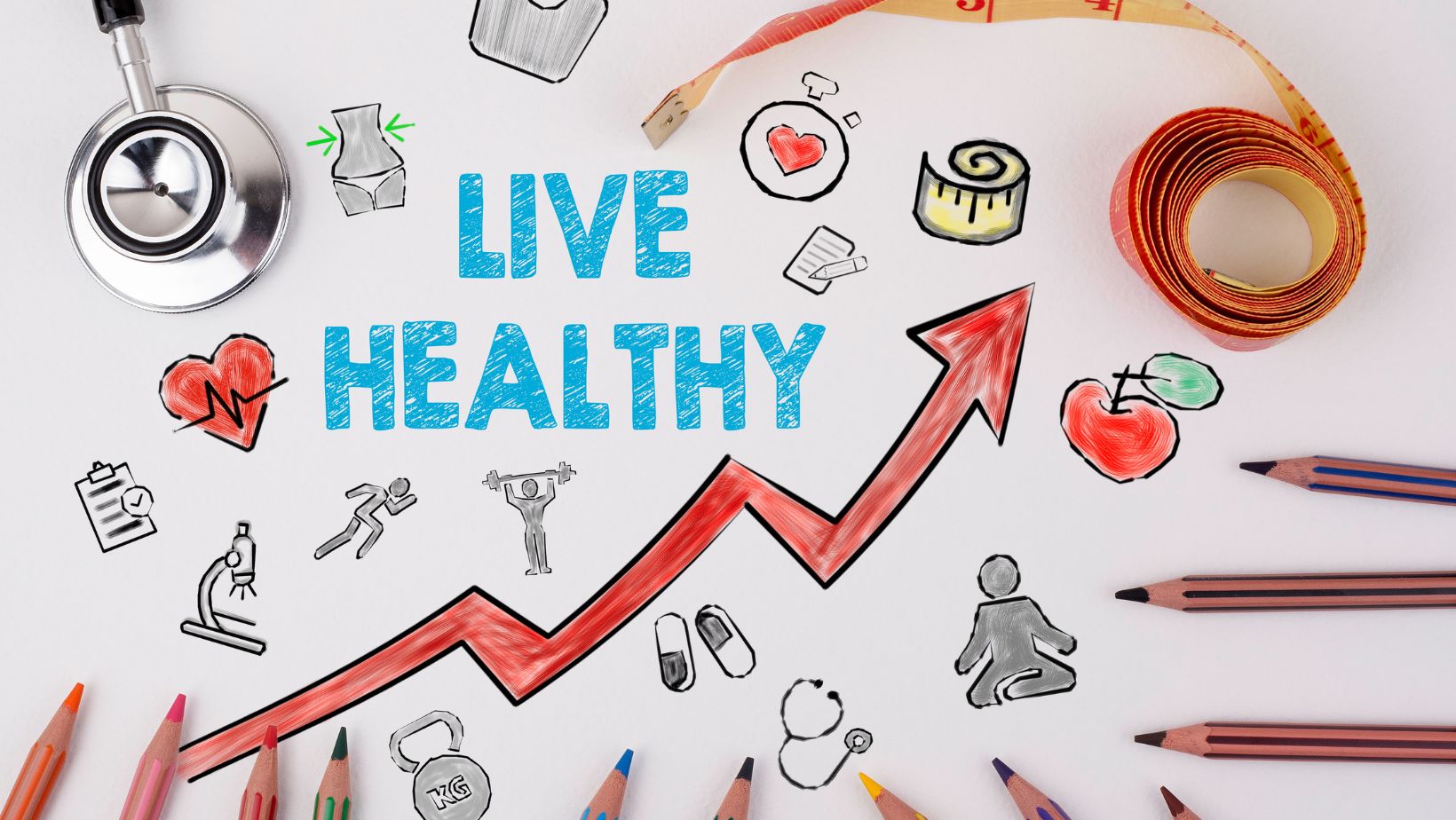
Ready to improve your life? The good news is that you don’t need to make major changes all at once to live better and healthier. Rather, long-lasting change is the result of consistent, small decisions made over time.
Developing better habits doesn’t require perfection—it requires alignment, intention, and support. This guide will share how to build better habits and improve your life with a few small changes.
Habit Stacking: How to Make Small Changes That Stick
When you decide to make a change, you might be tempted to go all in. Think of the beginning of a new year; have you ever made a huge resolution that you haven’t managed to keep?
You’re not alone. Research shows that, while 44% of Americans are likely to make a New Year’s resolution, around half are unsuccessful in keeping that resolution. That’s probably because they try to make too many changes too soon. The key to building lasting habits is compounding micro-routines.
Here are some tips to help you begin your journey to better habits:
- Start with one small change. If you want to read more, carry a book around with you to make it easier.
- Link a new habit to an existing one. For example, you could start doing planks or push-ups after you brush your teeth.
- Track your progress. Use journals, apps, or simple checklists to keep tabs on how you’re doing. This can help motivate you to keep going.
- Celebrate consistency, not just results. Rather than focusing on a weight loss goal, celebrate after a string of days of consistently exercising and eating well.
As your new habits become automatic in your routine, you can start stacking them and building an all-around healthier lifestyle.
Home Habits That Clear Mental Space
Have you ever noticed that you feel more stressed when your home is dirty, cluttered, and disorganized? When you’re trying to improve your daily life, creating order at home can help you clear mental space so you can focus on your new habits. Even small household upgrades—such as switching to eco-conscious cleaning alternatives like HeySunday—can improve your mindset and reduce your exposure to irritants and waste.
Consider the following tips:
- Simplify your laundry and cleaning routines. Fabrienne Bottero, at The Laundry Guru says: Make a schedule and stick to it. For example, you could choose one room a day to clean rather than trying to clean your entire house at once. Or you can plan to do one load of laundry a day, so it doesn’t accumulate and become overwhelming.
- Prep your space the night before. Mornings are hectic enough without trying to choose an outfit and get your work stuff together. Set everything out before you go to bed to simplify your morning routine.
- Let go of clutter slowly, room by room. There’s no doubt that clutter is overwhelming. Break up the work by focusing on one room at a time and celebrating once you’ve decluttered a space.
Food Habits That Build Energy, Connection, and Meaning
The right food can give you energy, improve your mental and physical health, and support healthy bodily functions. But food isn’t just fuel; it can also play a huge role in culture, joy, and relationships.
Building healthy food habits can be a challenge, so it’s wise to start slowly by making gradual changes and building on them over time. This will help you think about food differently and be more mindful about what you’re putting into your body.
“Gradually introducing healthy routines and dietary changes creates lasting habits,” says Lena Bakovic, Registered Dietitian at Live It Up. “Diets like the DASH, Mediterranean, and plant-based options offer a well-rounded approach—promoting overall health while also encouraging a deeper connection to personal well-being and community. The Mediterranean diet, in particular, emphasizes mindful eating and variety, encouraging individuals to explore diverse dishes and view food not just as nourishment, but as a meaningful, shared experience.”
Once you’ve found the right nutrition plan for your body and lifestyle, you’ll soon notice how much better you feel.
Fostering Community With Food
In addition to fueling your body, food can help foster a sense of community. Cooking for others, sharing meals, or simply inviting someone to try a new recipe can create connections that enrich your life in meaningful ways.
“It’s important to maintain a balance between health and enjoyment,” says Kat Benson, Registered Dietitian at VNutrition. “This doesn’t need to feel like pressure or a judgment of others’ habits. Instead, it should serve as a bridge to connect people. Preparing a delicious dinner and inviting others can inspire them to try similar recipes or discover healthy options they can incorporate into their own meals.”
And as an added bonus, you can find new and delicious recipes to share with friends and add to your repertoire. Consider hosting a recipe exchange where everyone brings their favorite recipe—you could set a theme, such as appetizers or desserts, or leave it up to the participants.
Learning Habits That Spark Discipline and Self-Worth
Consistent learning, including reading, problem-solving, tutoring, and skill-building, cultivates mental resilience and confidence. It can help you become more disciplined and confident, which, in turn, can make it easier to stick to your new habits.
If you’re unsure where to start, consider online learning. There are numerous platforms where you can learn skills like graphic design, writing, and photography. Alternatively, check out your local community college to see what’s on offer.
There’s nothing quite like mastering a new skill after several failed attempts. Whether you want to learn a language, a craft, or a skill, you’ll find that you feel more fulfilled overall.
Final Thoughts: Align Your Habits with the Life You Want
Better habits don’t require dramatic change. They require honest intention, consistency, and small, yet meaningful, shifts in our daily actions. To develop healthier habits that improve your life, starting small is the key to success. Choose one area—home, food, learning, or connection—and commit to a small habit this week.








